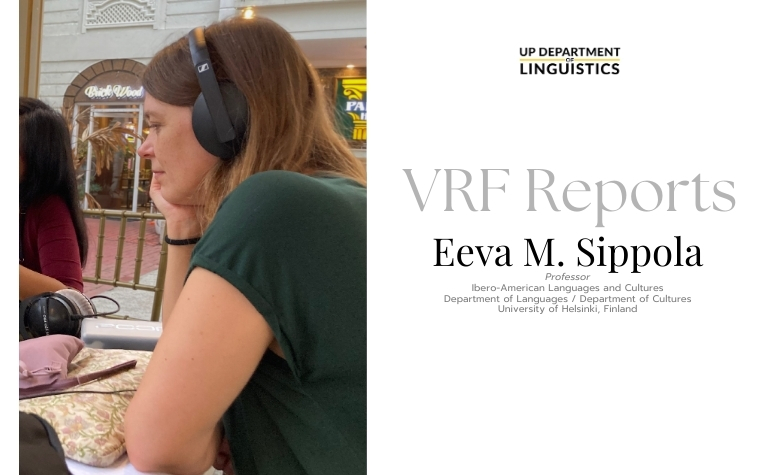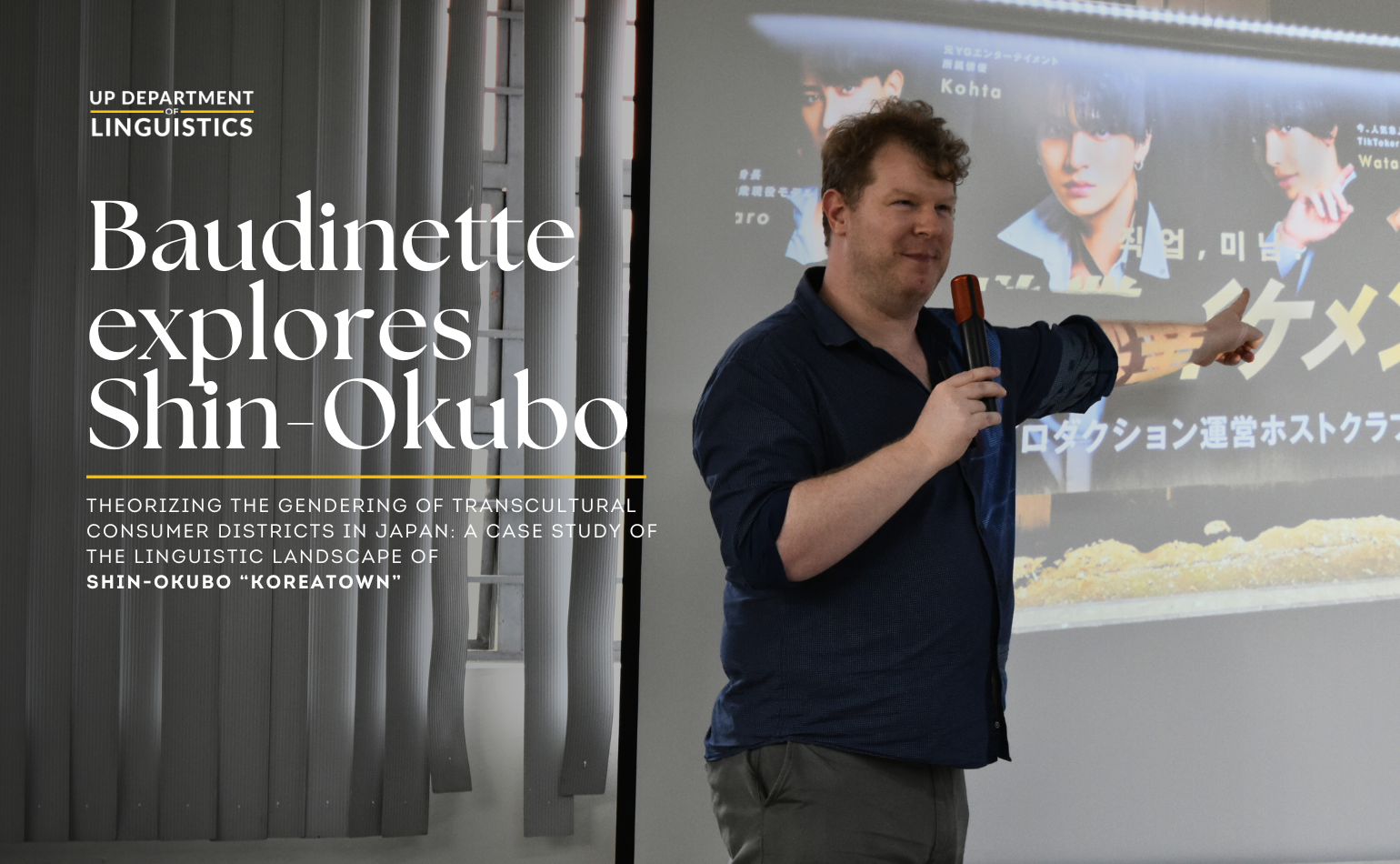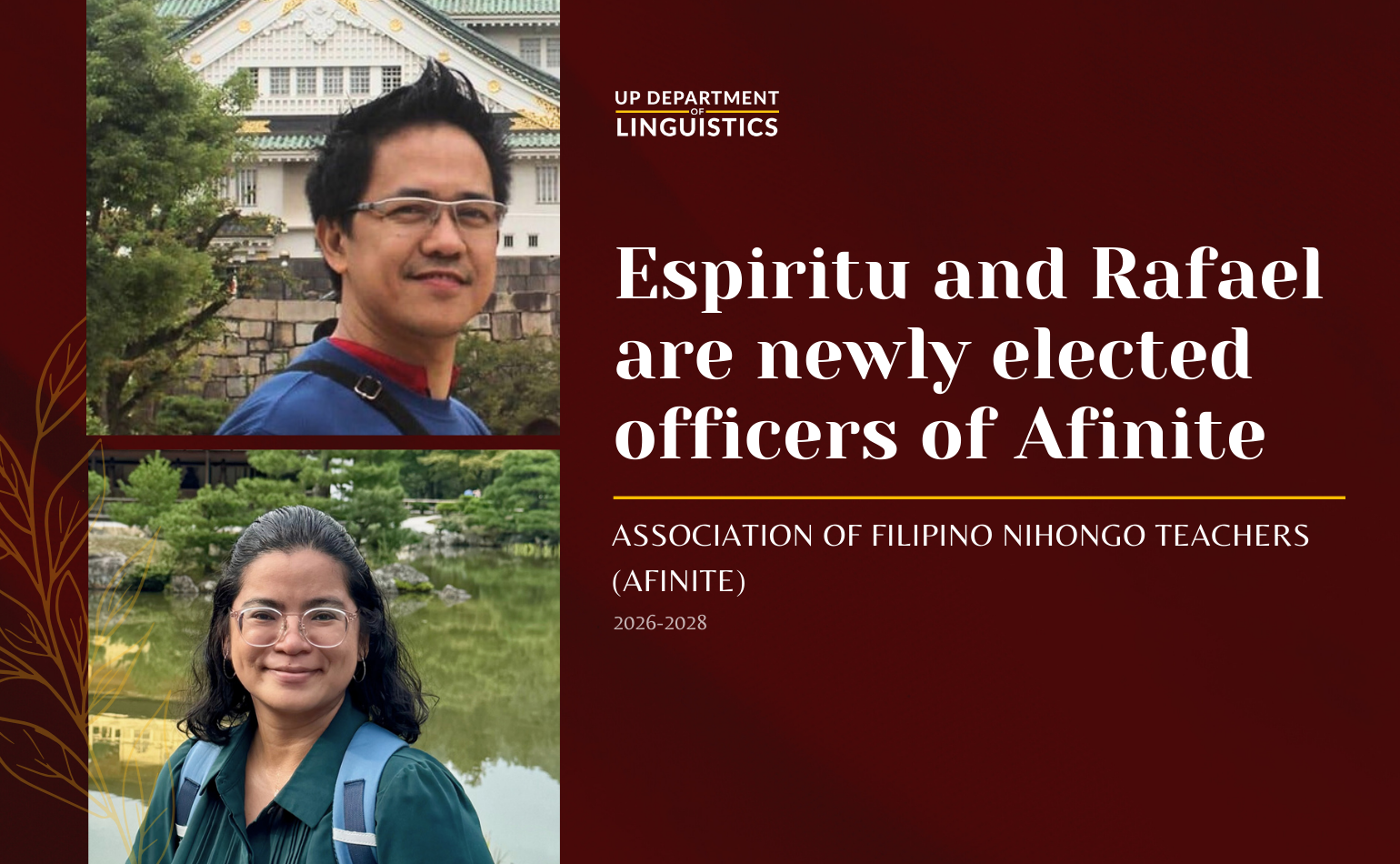
One of the main thrusts of the Department is the teaching of the national languages of Asia. We are thus very fortunate to have Assistant Professorial Fellow Dr. Kritsana A. Canilao, who teaches the Thai language as well as linguistics courses. Get to know khruu Poi, as we fondly call her, by reading on.
1. Tell us about your background.
I did my BA, MA, and PhD in Thailand. My BA is in French; I started learning French in high school. At that time, the European languages were very popular in Thailand. After earning my BA from Chiang Mai University, I went back home to Kanchanaburi, a western province of Central Thailand. Students during my time work after graduating, but many opt to enter graduate school. I decided to continue my studies; my dad encouraged me to apply to an MA program at Mahidol University. I chose linguistics because it was something related to languages—something related to my BA background, but actually it is almost a whole new world for me. Back then, there were only MA and PhD programs in linguistics in Thailand and there was no such program for undergraduates. Thus, at that time, I still had no clear idea what linguistics is all about.
Upon earning my MA degree, I told my parents that I was done with my studies and that I was ready to work, to teach somewhere in Thailand. But my adviser, ajarn (Professor) Somsonge Burusphat, liked my thesis, Cohesive Devices of the Narrative Songs of Jaran Manopetch. She got a grant from the Thailand Research Fund (TRF) and asked if I was interested in applying for this grant as her research assistant. And if I so, I need to pursue my PhD right away since enrollment in a PhD program is one of the requirements. Ajarn also mentioned that if I got accepted, I would have the opportunity to work on my research abroad for at least one semester as an exchange scholar. “I have already invited an American professor to collaborate with me on this research project. If you get accepted, he will be your co-adviser. That means you will have a chance to work on your studies in the US,” she explained. Despite a number of concerns, I finally decided to prepare for TRF’s requirements and go for it. My parents also supported me to work on this scholarship. Luckily, I got accepted. I feel thankful to ajarn Somsonge for her love, support, and all the great opportunities she provided me that made significant changes in my life.
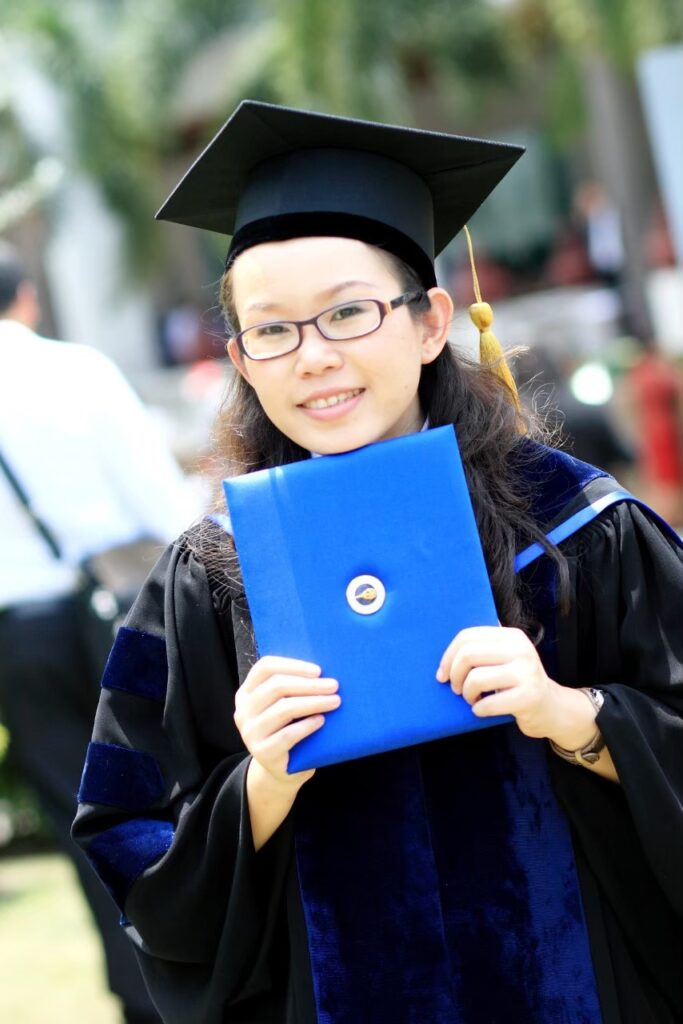
After my six-month stay in Illinois, I came back to Thailand and got another grant from the Asia Research Institute (ARI) to work on a research paper at the National University of Singapore (NUS). I was in Singapore for three months. And this was where I met my husband, a Filipino fellow who was accepted in the same program. Everything changed then. I love staying home and spending time with my family; I had planned to find a full-time teaching job in Thailand after graduation. But love made a shift in my life. We got married a year after we met. At that time, I was not yet done with my PhD; I was still working on my dissertation when I moved here to the Philippines.
I started working at the UP Department of Linguistics in 2010 along with my husband, who also began teaching at UP Diliman (UPD). As a senior lecturer, I taught elementary Thai to undergraduate students and in extramural classes. It was so challenging because not many students enrolled in my class—Thai was new for them.
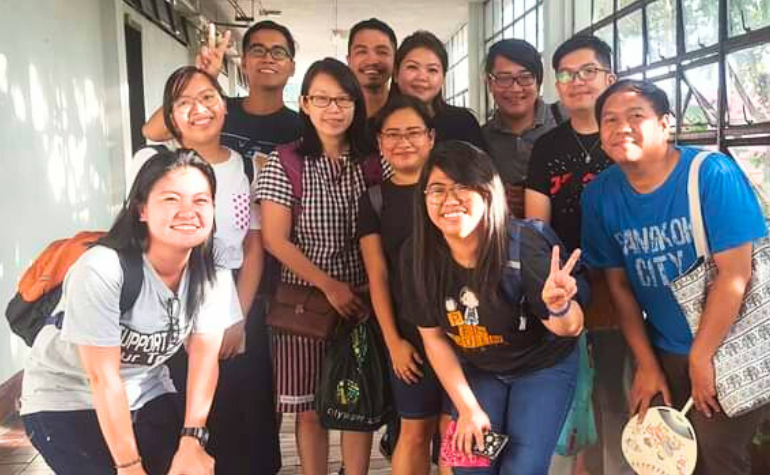
However, I enjoyed teaching. Before I moved to the Philippines, I did not have much teaching experience. UP and the students have been helping me build confidence in teaching and handling courses. As time passed, I could finally see myself as a teacher. My classes eventually had more students. I felt more at home at the Department. At that time, our office was at the Faculty Center where there was very limited space (around five of us in one small faculty room), but I enjoyed the company of my colleagues, sharing stories, teaching methods, and other class-related matters.
I love the dynamics of the Department. “Kain na tayo. Kumain ka na?” This is one of the first Filipino “greetings” I learned from the Department. As an international faculty, I do appreciate their help, understanding, and support as they have been treating me as one of them, a member of the Lingg family.
In 2013, I had to quit because my husband needed the family’s support while he pursued his studies in Illinois. I love my teaching job and it was a hard decision to stop. At the same time, a few days before we got the good news regarding my husband’s studies, I had just been offered a full-time position at the Department.
At the end of 2018, when my husband was about to finish his studies, we decided to go back home to the Philippines. In 2019, the Department welcomed me back as a full-time employee. Besides undergraduate courses, I was also assigned to conduct graduate classes.
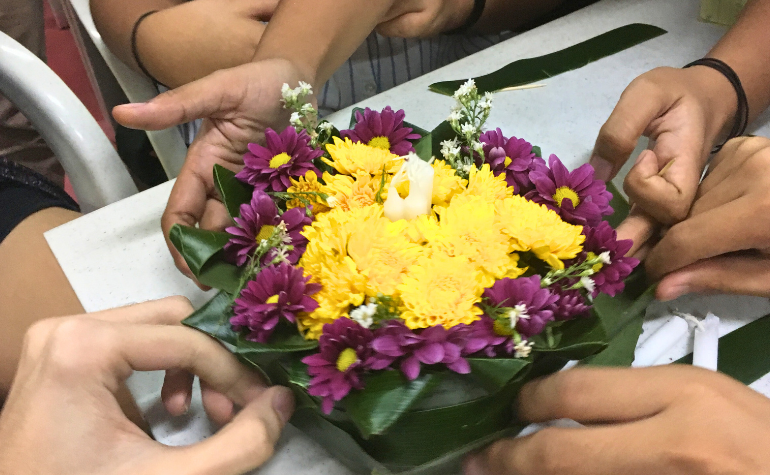
2. How is your experience teaching at UP Diliman so far?
Teaching Thai at UPD is fun because students pay close attention to what I share. They also actively participate in class activities. The best part is that I can apply linguistics when teaching the language, which helps students understand and master Thai pronunciation and the language system confidently. We have lots of activities: We share stories and do projects. As for the Lingg classes, I am worried every time I handle them since there are concepts and/or theories that are different compared to when I studied linguistics. I myself have to study, too, especially for the courses that involve Philippine languages. As a facilitator, the exchange of ideas in graduate classes is what I enjoy—I also learn a lot from the students.
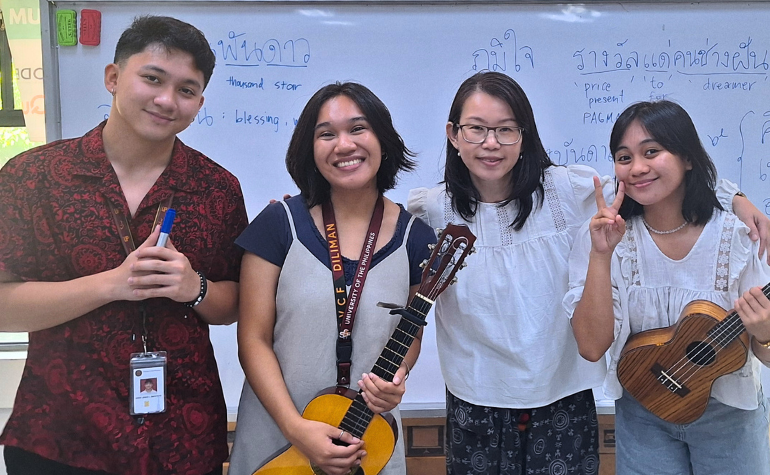
3. What are the challenges you encountered as an international faculty member, in terms of teaching and/or working for UP in general?
In terms of teaching, as previously mentioned, discussing Philippine languages in classes is one of my concerns since “medyo marunong lang ako sa Filipino.” I still find learning Filipino and other Philippine languages very challenging even after staying here for several years now. Thus, I do hope that UP will be able to offer local language courses to international faculty and students soon.
As a non-native faculty, besides the nature of work, I need to get to know the UP community, traditions, and practices. The Thai values and concepts I acquired cannot always be applied in contemplating and dealing with several matters in UP.
UPD’s “exclusive” policy directed towards the international faculty has been making me uncomfortable since its implementation in 2020. The reclassified status of “no employer-employee relationship” as a fellow led to losing not just inclusive benefits, but also working focus and good mental health. [International faculty members were considered regular employees prior to 2019. Changes in University policy, specifically the sudden application of Memorandum No. OVCAA-ECA 18-091 to all international faculty members, stripped them of certain benefits and privileges, on top of the employer-employee relationship between the University and the international faculty. In an open letter to UP Diliman Chancellor Edgardo Carlo Vistan II sent last May 30, 2024, the signatories firmly denounced the unequal treatment and disinformation of international faculty and demanded a reasonable response from the administration.]
4. Can you share some tips for learning Thai, especially for students who might be intimidated by the language?
Most students worry about the script and the contrastive tones; their concerns usually center on how they can apply their language skills to Thai-related activities and how they can use them to communicate with native Thai speakers.
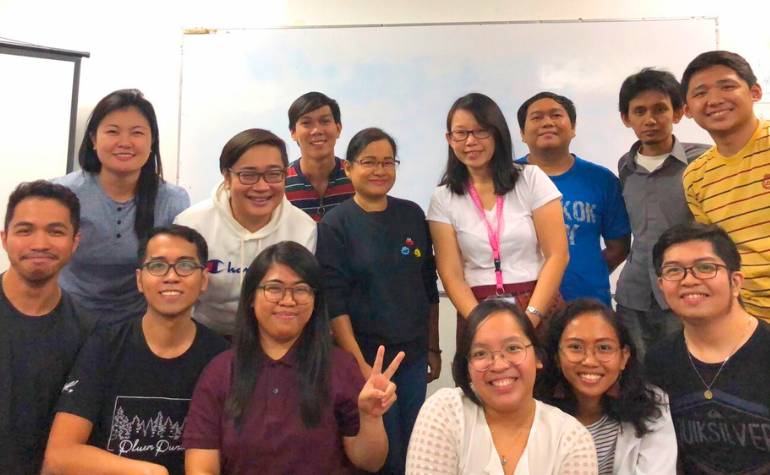
For the ones who are interested in learning Thai, I would say, “Just give it a try. Set your goal, and go for it!” I usually remind my students that it is okay to make mistakes; keep practicing/using the language consistently; and that they need to get into it with joy.
Students need encouragement and support to overcome their fears. These are what I also need when I start doing new things, such as learning a new language.
5. What are your ongoing projects or future research plans?
My ongoing research project is the one I presented as part of the Talks on Asian Languages (TAL) last December. It is about the assessment of Filipino students learning Standard Thai tones. My main goal in this study is to help students master the tones for effective communication. I also plan to continue working on an elementary Thai textbook for Filipinos for use in the Thai classes of the Department.
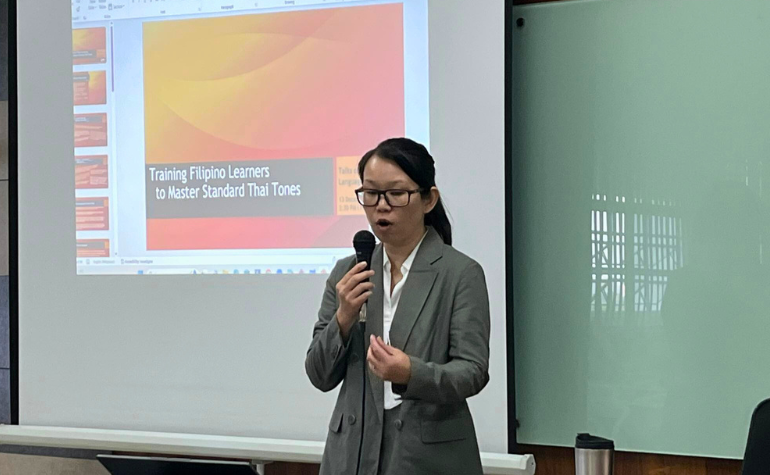
6. Lastly, what is something that you enjoy during your leisure time?
I enjoy spending time with my family. I love exploring different places with my husband and kids. I enjoy taking pictures, especially of natural landscapes. I also love singing and doing some voice exercises. Cooking is something that I am also fond of.
Published by Patricia Anne Asuncion

